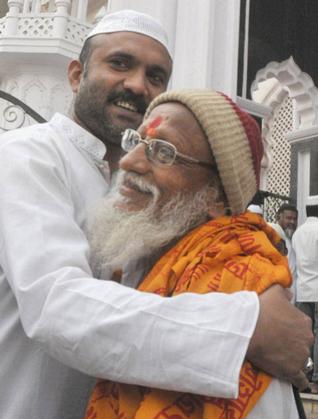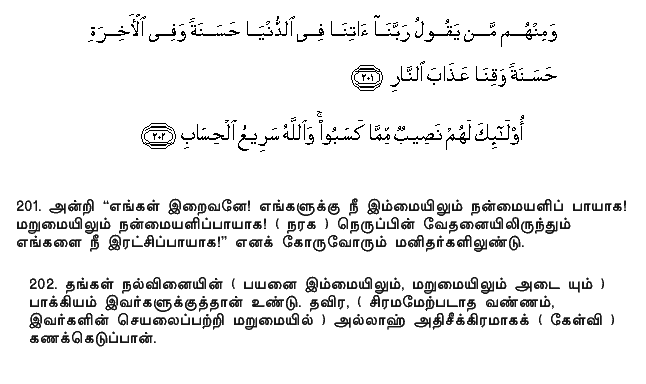


FOR more than a century Hindu-Muslim relations in India appear to have remained unsettled, one dimension of which may be characterised as conflictual. It led to partition of the country which brought in its wake even enlarged and more intensified areas of conflict, including Kashmir, manifested in periodic inter-state wars and inter-community blood-baths.
The Constitution of India and institutions
established under it are supposed to provide mechanism for
resolution of inter-group conflicts in the country. But ideal
conditions for the working of the Constitution do not obtain,
reasons for which may be sought in the culture of power politics, in
the judicial system and in the law-enforcement machinery, besides
the non-egalitarian traditional cultural ethos that makes us accept
unfair and unjust treatment of the �other�. Even if conditions on
the ground improve enabling Constitutional scheme of dispute
resolution to become a reality, sources of conflict, some of which
are inbuilt in the Constitution, will not simply disappear. There
are for example grey areas in the Constitutional provisions related
to freedom of religion and conversion, secularism and cow
protection, and minority right to preserve its culture along with
directive to secure Uniform Personal Laws, wherein conflicting
claims do not appear to have been harmonized either by judiciary or
by political consensus. The issues therefore cannot be left to be
resolved by law alone.
|
If the two
communities are ready not to heap defeat and humiliation, |
The following are some of the issues that have the potential to be used in aggravating communal divide for political mobilization as has been done in the past.
Understanding of and dealing with history, especially that of Medieval India in the context of role of Islam in India.
Ayodhya, Kashi and Mathura as special cases of the legacy of history.
Characterisation of one by the other community as malicha and kafir
Religious processions and playing of music before mosque
Conversions from one religion to another
Vande Matram
Cow protection
Hindu culture, national heroes, and Muslims
Communal riots
The de facto status of Urdu especially in Uttar Pradesh
Conflicting perceptions of discriminatory-exclusionary practices against Muslims and perceptions of their appeasement
Muslim Personal Law and Uniform Civil Code
Muslims loyalty to India.
Perception of threat of worldwide Islamic fundamentalist domination by Hindus and assimilation by Muslims.
One can easily be tempted to characterise the Hindu-Muslim sub-continental mortal conflict situation including that in Kashmir in terms of Samuel Huntington�s theory of �clash of civilizations�. But those who do not subscribe to any theory that makes us accept the inevitability of long term historical processes and affirm faith in the efficacy of organised human intervention for redirecting the course of history, as has happed in Western Europe, need to undertake the mission of peaceful resolution of this conflict. One can hope that all liberals, humanists and genuinely religious persons and groups belong to the latter category.
The first requisite of the success of any such mission is the acceptance by the disputants that peace dividends will not only be beneficial for all concerned in terms of socio-economic-cultural and human development, but also in terms of realization of respective civilizational aspirations.
The second requirement is appropriate structuring of the process of conciliation.
Any such conciliation group will be required to take up Ayodhya, cow protection and conversion etc. not one by one as separate issues, but to address the whole range of issues as manifestations of each community�s collective state of mind characterised by distrust and fear engendered by the legacy of history and strengthened by partition and Indo-Pak conflicts.
Any attempt to tackle one single contentious issue like Ayodhya will be frustrated, as has happened in the past, as the possible satisfactory solution based on compromise will make one community nurse a feeling of defeat and humiliation. But when the entire range of issues are brought under discussion with the spirit of mutual respect, good will and accommodation the resultant Comprehensive Compact will be viewed with satisfaction by all.
It should, for example, be possible for Muslims to voluntarily declare that they will not slaughter cows for any purpose, and also to reassure Hindus that there is no political design to induce conversion of weak and vulnerable groups of Hindus. Banning cow slaughter by a Central legislation may come into conflict with the demands of secularism, but its coming into effect through a compact will not pose any problem. All Muslims know it that by giving up their option to slaughter cow for ritual sacrifice or for food will not make them compromise any religious tenet or dietary requirement, so long as other animals are available for sacrifice and food. Several Muslim monarchs, ulema and leaders including Sir Syed Ahmad Khan adopted such conciliatory attitude in the past.
Given the right perspective, it should not lie beyond the realm of the possible to amicably resolve the issue of Ayodhya - if Muslims can be reasonably assured that compromise will yield permanent peace dividends in terms of impartial enforcement of law to protect their lives and honour, and also in terms of securing their due share in social economic, and political life of the nation alongside fully enjoying their right to distinct identity.
Kashmir need not be bracketed with the range of Hindu-Muslim issues. In one sense it is a separate issue, and needs to be tackled separately. But in the broader historical perspective it is a part of the history of unresolved Hindu-Mulsim conflict leading to partition. Any overall religio-cultural conciliation between Hindus and Muslims in India may be expected to lead to a qualitative change in the attitude of Kashmiris.
The author is a former professor of English at Aligarh Muslim University and is a PUCL activist.
Courtesy: www.islamicvoice.com
| And there are men who say: "Our Lord! Give us good in this world and good in the hereafter, and defend us from the torment of the Fire!" To these will be allotted what they have earned; and Allah is quick in account. [Quran 2.201 & 202] |
This is the right way along with others' efforts in bridging the gap between two major communities of this great nation. In the words of great Educational reformer Sir Syed Ahmad Khan said: Muslims and Hindus of this nation are like two beautiful eyes of a bride, if one of them is defected, the beauty of bride is lost. So let us maintain this Beauty, Harmony and Goodwill through such scholarly approach by way of regular interactions and dialogues. Good luck, Jai Hind!

|

|

|